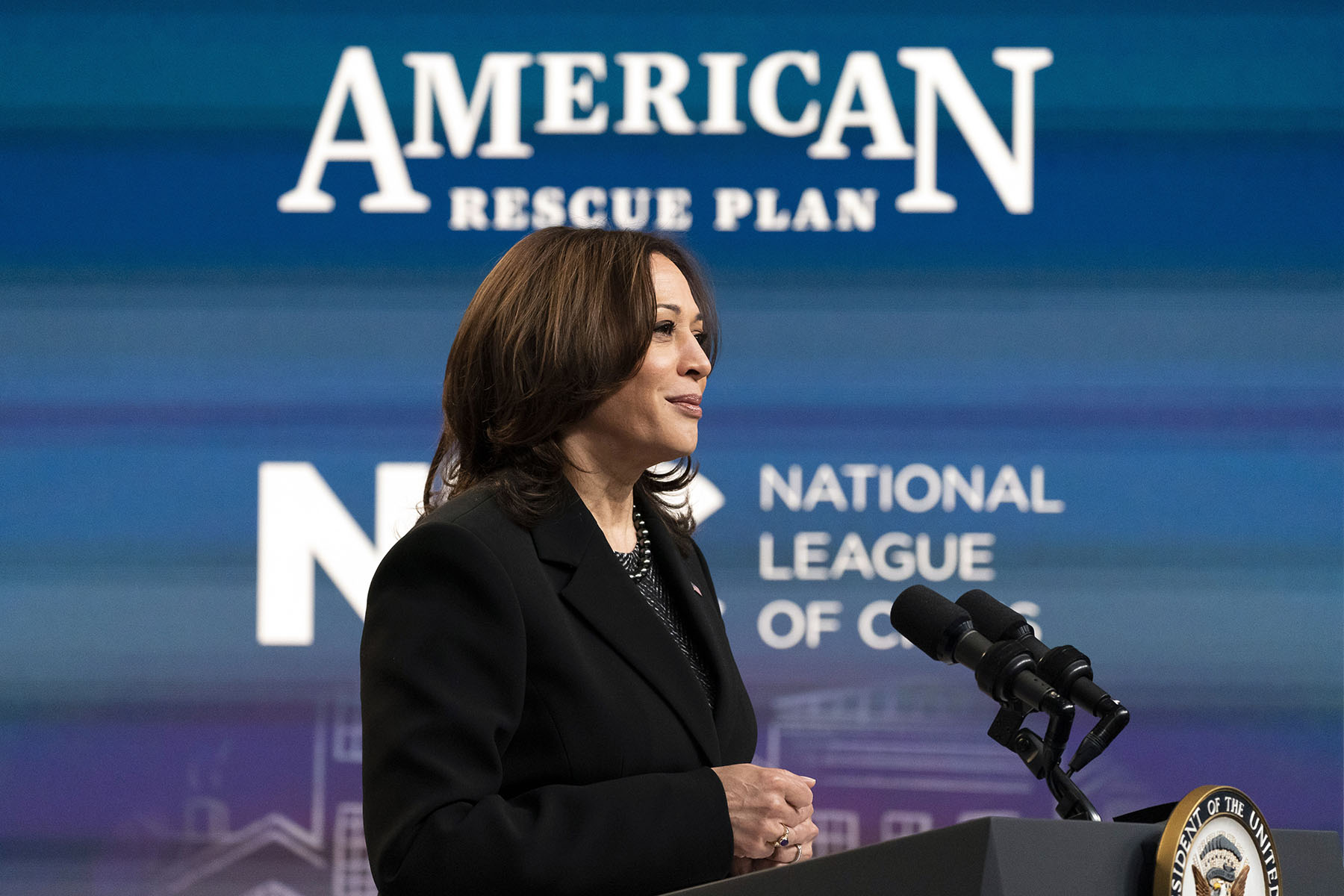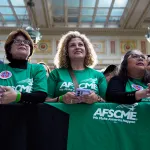Last week, Vice President Kamala Harris touted new data illustrating the ways in which $37 billion in American Rescue Plan funding has expanded and improved home- and community-based services. The White House also released detailed data, for the first time, showing how that money is being used.
“Let’s be clear, every caregiver in our nation deserves fair pay, safe working conditions and respect. And every person in our nation deserves access to high-quality care, so they can live with safety, dignity and self determination,” Harris said on a press call.
Over 7 million older and disabled Americans rely on home- and community-based services to support them in daily activities like eating, dressing and bathing in their own homes, rather than in facilities like nursing homes or state institutions.
The workforce supporting older and disabled Americans is overwhelmingly made up of women, particularly women of color. According to the nonpartisan nonprofit Paraprofessional Healthcare Institute, nearly 9 in 10 home care workers are women and over half are women of color.
The American Rescue Plan was passed in 2021 as a stimulus package, to help mitigate the economic impact of the COVID-19 pandemic. It also contained some funding for home- and community-based services.
States had flexibility in how they could apply the funding. Colorado, for example, used it to raise the base wage for home care workers from $12.56 to $15 an hour, as well as provide specialized training on caring for people with Alzheimer’s and other forms of dementia. New Jersey is using the money to pay for subsidized accessible housing for those at risk of homelessness or institutionalization.
The American Rescue Plan funding is not meant as a permanent solution and will run out in 2025. In order to apply for this specific funding, states had to put forward plans to continue their changes after the money ran out.
“Part of the rules around the original funding was that whatever the state planned, they were supposed to be able to continue with it,” said Elizabeth Edwards, a senior attorney at the National Health Law Program, which advocates for health care access for low-income and underserved Americans.
Multiple administrative officials described the American Rescue Plan funding as a “downpayment” on improving and expanding home care.
“There is no question that the [home care] investment must be seen as a downpayment on a long-term solution, not a long-term solution in and of itself,” said Gene Sperling, White House coordinator for the American Rescue Plan and senior adviser to President Joe Biden.
Sperling and others at the White House also see the American Rescue Plan funding and its successful implementation as a proof-of-concept.
“This just shows how popular and successful this type of investment can be,” Sperling said. Sperling pointed to the president’s budget as part of his commitment to home care. However, in order to continue in that investment, Congress will have to act by passing legislation to continue increasing and expanding funding for home and community-based services.
For years, the home- and community-based service system has been teetering on the brink of collapse. Low pay, grueling hours and little opportunity for improvement or advancement have driven many out of the industry, leading to high turnover and worker shortages.
In a White House panel on December 13 to promote the announcement, Secretary of Health and Human Services Xavier Becerra addressed workers directly: “We want you to be making more money than the folks flipping burgers at the hamburger joint down the street. We know that we have to do better. And that’s why we do the work together.”
During the same panel, Theo Braddy, executive director of the National Council on Independent Living, discussed the difficulty he has had finding appropriate home care for himself — Braddy uses a wheelchair.
“The pandemic demonstrated how badly home- and community-based services are needed. I have some influence and connections. And even for me, it was extremely difficult to find attendant care. I had to accept unvaccinated attendants and put my life in danger because I wanted to get out of bed,” Braddy said.
$37 billion is not enough, in and of itself, to alleviate the severe and systemic problems facing the home- and community-based service system. But advocates and the administration both contend it is a step in the right direction.
Sperling also stressed the bipartisan, popular nature of home- and community-based services. All 50 states, including those whose representatives in Congress opposed the American Rescue Plan, opted in to receive the funding to improve and expand their programs.
“I think what that shows is that when you get even a few inches below the political rhetoric and grandstanding, this is not a Democrat or Republican or red state or blue state issue. It’s a kitchen table issue. Both Republicans and Democrats want the best for their loved ones who are dealing with dementia or who want to ensure a loved one with autism can live as independently as possible and work as much as possible,” Sperling said.







